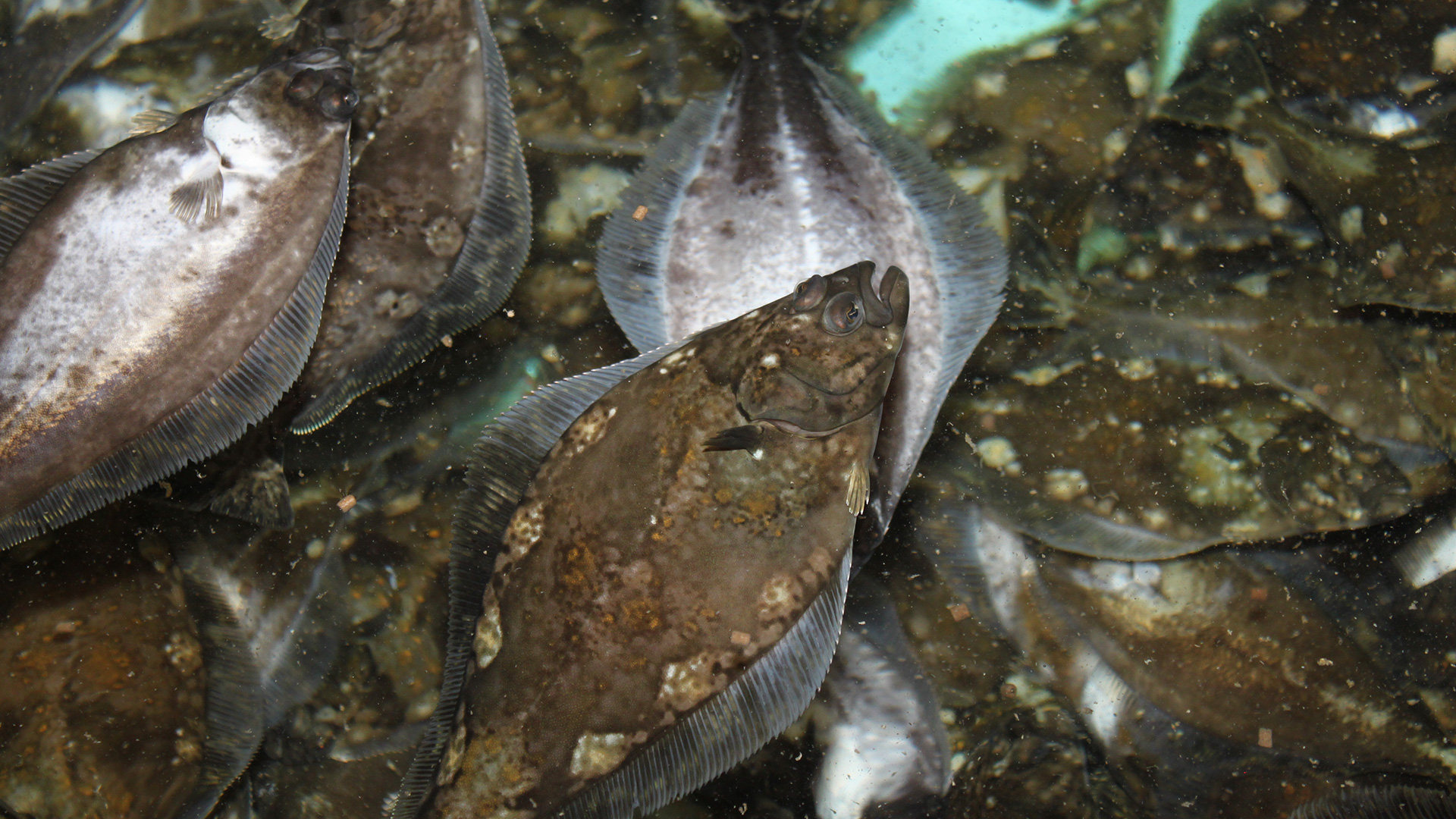Atlantic Halibut Life Cycle
The revenue cycle of Halibut is approximately 4 years from egg to market but getting shorter as aquaculture conditions improve. Much like the early years of salmon and other new aquaculture species development, the growth cycle is decreasing with better nutrition and husbandry. Beginning as a newly spawned egg to 3 kg market ready fish requires 42 months while the grow-out from a 200 gram juvenile at HPEI requires 24 months in a feedlot to become a full sized market product. HPEI has a portion of each population which reach market size several months earlier and continues to reduce days to market. Atlantic halibut have a genetic advantage over other species as the brood stock continue to produce millions of viable eggs for decades so with modern genetic profiling, the best fish can provide a solid and reliable basis for juvenile production. HPEI has reduced the days to market of the finished product by several months.
The following pictorial provides the times and pictures associated with raising halibut.
HPEI’s Process Advantage
The competitive advantages that HPEI has over the wild fisheries, sea cage farming and most other farming operations are through Innovation, Productivity and Efficiency:
- The fish at HPEI will grow all year, as temperatures of the geothermal well water remain within the range of Atlantic halibut over the 12 months of the year.
- The geothermally modified well water used for grow-outs does not require heating or cooling of incoming well water compared to other fish farming facilities. This generates significant savings in operational costs.
- To accelerate growth rate of the halibut, an innovative and thermally efficient energy recovery system further increases the water temperature of the growing operations beyond the already advantageous geothermal supply.
- The water in the tanks also heats the buildings at HPEI.
- The water drawn from the deep salt water wells is free of pathogens; no antibiotic treatments are required for the fish. Largely because of this, HPEI has now achieved Ocean Wise status for their farmed halibut from the Vancouver Aquarium.
- Potential predators such as birds, seals or predatory fish are non-existent as the process utilizes land-based tanks.
- Environmental conditions like lighting and feeding cycles can be easily controlled and adapted according to the requirements of a certain halibut growth phase.
- Juveniles arise from captive broodstock creating no negative impact on wild Atlantic halibut stocks.
- PEI has a strong working relationship with a variety of institutions such as the Atlantic Veterinary College, the Bio Food Tech Center, UPEI Business and Engineering Departments and the Culinary Institute of Canada. These institutions support the development and operations of HPEI.
- Compared to wild fish caught on longlines, farmed halibut have a thicker fillet, can be custom ordered by size, and shipping times are short and well controlled. The product has a longer shelf life than other fish and can be supplied to the market 365 days of the year.
- After 8 successful years of land-based halibut operation, HPEI has considerable in-house expertise and knowledge of optimal halibut growth and marketing.

